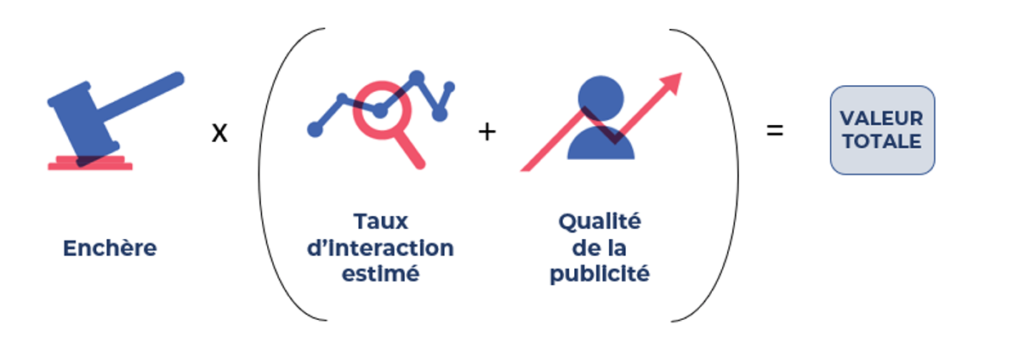Could winning Facebook auctions be more than just about being the highest bidder?
Exploring the intricate world of Facebook ad auctions, one finds that these auctions are pivotal in driving the success of marketing campaigns on the platform. Aiming to balance the needs of advertisers and users, Facebook prioritizes displaying content that provides a positive user experience while helping advertisers effectively reach their desired audiences.
The key takeaway from this discussion is that winning Facebook auctions is a nuanced process that goes beyond merely having the highest bid. Factors such as audience demographics, ad placements, posting schedules, optimization events, budget management, and campaign value all play significant roles in determining success within these auctions.
Furthermore, the article sheds light on the ever-changing landscape of Facebook auction budgets and bid amounts, which are influenced by real-time competition. The concept of winning Facebook auctions hinges on the interplay of auction amount, forecasted action rate, and user value in driving successful campaigns. Elements like historical campaign data, audience behavior, ad quality, engagement rates, landing page quality, and ad frequency are all noted to impact competitiveness in these auctions.
In conclusion, the article underscores the importance for marketers to grasp the intricate dynamics between auctions, target audiences, and ad quality to maximize their campaigns’ efficacy on the platform. Notably, it contrasts Facebook’s predictive auction nature with Google’s more factual auction system, highlighting the unique complexities of Facebook’s ad auctions.
There is a lot to be said about Facebook auctions. As marketers, we all have a somewhat love-hate relationship with the system, which plays a big part in the success of our Facebook campaigns. Like any long-standing relationship, over time, what seemed mysterious to us at the beginning begins to be much more clearer.

Source: Arkheus
How do Facebook ad auctions work ?
Before getting to the heart of the matter, it is important to understand what Facebook auctions are. True to itself, Facebook wants to satisfy both its advertizers and users. This is somewhat risky, but not impossible for the tech giant. Facebook bidding aims to display content that creates a “positive experience” for an audience-all while allowing advertizers to reach an attractive target audience to achieve their goals. In theory, everybody wins. This relationship is established on the basis of two factors: the audience and the message. We’ll come back to these two things a little later.
The purpose of auctions is to determine which ads will have the most value and relevance when displayed to their target audience. The more relevant you are to Facebook, the more valuable you will be in auctions. The more relevance you have, the less expensive your cost. The more auctions you win, the more visible you will be. This way, Facebook ensures that its advertizers take care of their ads and allocates high marks to the best students. Be careful, however, when the auction takes place, Facebook proceeds on the basis of estimates and forecasts to display the right ads to the right person at the right time.
What criteria influence Facebook ad auctions ?
It’s not necessarily the highest bidder that wins the auction. Facebook, like Google, emphasizes user experience to ensure consistency between organic content and sponsored content. For an ad to be visible on Facebook, it needs to go through 3 stages, of which auctions are only the last.
Step 1: Analysis of the advertizer’s criteria (audience and strategy)
Step 2: Available budget
Step 3: The auction is won

Source : Neomedia
The nature of your audience: It is imperative to carefully consider your audience. Quantitatively, its size must be appropriate to deliver the expected results. Qualitatively, it must be valuable enough to guide your prospecting. From an auction standpoint, the audience should be qualified without being too restrictive (having too many interests or too narrow a demographic target). If not, your chances of finding auctions that meet all of your criteria are slim and your impact will be minimal. An audience that overlaps or a saturated audience also greatly reduces your competitiveness.
- Placement: Your potential distribution grows or shrinks with the placements chosen for your campaigns. An ad that runs only on news feeds will have a smaller run than if it ran on all Facebook placements. You must therefore think about this parameter to optimize your ad’s visibility and competitiveness in auctions.
- The posting schedule: The posting schedule will have an impact on auctions since it excludes certain times of the campaign. Be careful not to choose a time slot that is too tight, as it does not leave the system enough flexibility to display your ads.
- The optimization event: This has a big influence on the auction. The optimization event tells Facebook which segment of your audience to focus on when displaying an ad. Therefore, if the chosen event is not in line with the rest of the strategy or if the system does not have enough data on which to base itself—especially when the campaigns are optimized for conversion—you may find this setting is working against your campaign.
- The amount of the budget: See next section
- The amount of the auction: See next section
Facebook auction budget
An ad needs a budget in order to be visible. This may sound simple, but it’s not. Your bid amount is your available budget. You can manually determine this amount, or Facebook can do it automatically.
In this second scenario, Facebook takes into account the available budget and the remaining campaign time to adjust the ideal bid amount for the best possible results. When setting up your Facebook campaign, you will also have the choice between a classic or accelerated delivery.
The first will ensure that your budget is uniformly distributed over time. Facebook will therefore tend to lower your bid to ensure that you capture more opportunities throughout the duration of your campaign. Facebook will ignore opportunities if they are too expensive and negatively impact the rest of the campaign. On the flip side, expedited delivery positions itself on all available opportunities so that the entire budget is used up as quickly as possible. There is therefore no guarantee that the allocated budget will last for the entire duration of the campaign.
The bids and costs are therefore never fixed; they constantly evolve according to the reality of the competition at a given moment.
Winning Facebook auctions
The time has finally come to win the Facebook auction. Here’s how Facebook interprets the procedure:
(AUCTION AMOUNT x FORECASTED ACTION RATE) + USER VALUE
The highest bidder is not necessarily the winner. However, you have to make sure you are competitive enough in your market. Be careful to not bid too low as this will limit your distribution.
Forecasted action rate:
Your campaign value:
- Forecasted quality of the ad: It goes without saying that the pre-click experience must be qualitative—at least to Facebook’s standards. This metric can be measured using the Quality feature in the Relevance section. Facebook reviews the entire ad and determines if the text, visuals and audience are consistent.
- Forecasted engagement rate: If Facebook deems that your audience will be inclined and receptive to your ad, your forecasted engagement rate will be better. This rate can be improved by refining and qualifying your audience as well as testing multiple ad versions. This metric can be measured using the Engagement feature in the Relevance section.
- Forecasted quality of the landing page: This is similar to engagement. Facebook estimates your conversion success rate based on the quality of your landing page as well as an overall observation of high-level audience behaviour. This metric can be measured using the Conversion feature in the Relevance section.
- Frequency: Frequency can penalize your competitiveness in auctions. According to Facebook, too high a frequency is synonymous with low quality. In fact, if your frequency is high, it means that your impressions are increasing—but not your clicks. If the value is too high, Facebook will conclude that your audience is not interested in your ad. Facebook will decrease your delivery so that it no longer bores its users with content they don’t want to see.
Facebook auctions are part of a system influenced by a multitude of factors, some of which you can control. Others are beyond your reach. The important thing is to understand the relationship between the auction, audience and ad in order to create optimized campaigns.
This understanding will also enable you to make decisions on campaigns that need to be reviewed or improved in order to perform better. Unlike Google, which features an auction system that is more direct and based on factual information, Facebook auctions are part of an ecosystem based on predictions and factors that influenced each other.
For some help in the field or simply to hire a certified agency, contact us!

